
After 1 year of project, here is NEWSLETTER #1!
* * *
Content of NEWSLETTER #1 – September 2023
- Quick presentation of the PRIMA RESILINK project
- What are the main objectives and contributions?
- Is there a promotional video to watch?
- Why is it more than a product selling platform?
- What have been the activities during the first year?
- What are the next Newsletters?
- How to subscribe to Newsletters, ask questions and provide feedback to Newsletters?
QUICK PRESENTATION OF THE PRIMA RESILINK PROJECT
RESILINK is a PRIMA project accepted from the Section 2 Multi-Topic – Thematic Area 3 – Agro-food Value Chain 2021 Call. The specific topic is: Topic 2.3.1 Increasing the resilience of small-scale farms to global challenges and COVID-like crisis by using adapted technologies, smart agri-food supply chain and crisis management tools.
The main motivation of the RESILINK project is to increase resilience of smallholder farmers in crisis situation. Increasing the resilience of smallholders to face unexpected crises is a multidimensional challenge that requires a multifaceted policy. However, common to most crisis situations, the restrictions on movements has many impacts on the availability of distant resources such as agricultural supplies, equipment, services, labours and access to markets to name a few. Therefore, RESILINK will increase smallholder’s resilience by providing continuity of access to both resources and markets in crisis situations. It will empower the local agri-food value chain model by optimizing usage of local resources, promoting and generalizing local resource sharing approach and facilitating territorial markets. This local agri-food value chain model will also be integrated with the local e-commerce, supply & distribution channels. The concept of localized and short agri-food value chain will also impact on the agro ecological system by minimizing the food losses and contributing to the climate & environment changes with shorter food supply chains and logistics. As a result, new and local innovative services can be identified and created, enhancing further the smallholders’ agri-food chain.
It is run by a consortium of 8 international partners. The coordinator of the project is Prof. Congduc Pham from University of Pau, France.


WHAT ARE THE MAIN OBJECTIVES AND CONTRIBUTIONS?
The objectives of the project are to improve the agri-food value chain by optimizing usage of local resources, generalizing local resource sharing approach and facilitating territorial markets. It will develop distributed digital resource management platform for real-time exchange of information on territorial resources and supplies & demands; connecting smallholders to new supply, sharing opportunities and distribution channels. RESILINK will use cutting-edge digital technologies to connect fields and farms resources, automatize and add intelligence in the agri-food value chain to provide simple application interfaces adapted to smallholders. In addition, RESILINK will implement an incremental piloting & evaluation program to maximize smallholders’ acceptability, large-scale adoption and sustainable usage (even in non-crisis situations). Finally, RESILINK will address local innovation capacity and facilitate technology appropriation by developing the digital intelligent resource management platform in open-source with an extensive public API to maximize re-utilisation and facilitate the integration of new platforms. More details can be found in the OBJECTIVES menu and the CONCEPTS menu.


THIS IS THE BIG PICTURE OF RESILINK
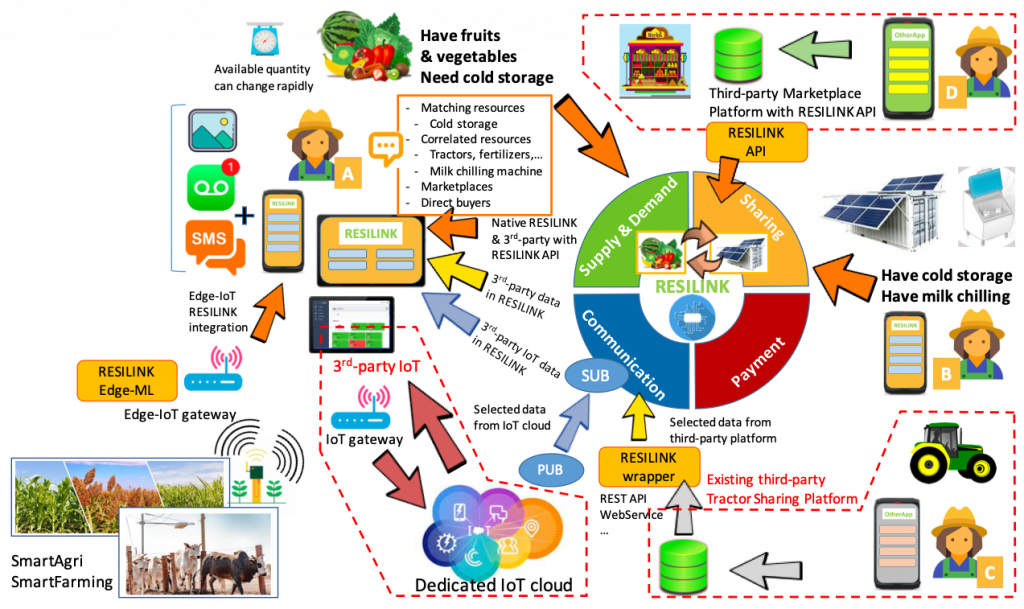
IS THERE A PROMOTIONAL VIDEO TO WATCH?
and the answer is… YES! Click below!
WHY IS IT MORE THAN A PRODUCT SELLING PLATFORM?
To implement the generalizing local resource sharing approach, RESILINK develops a distributed digital resource management platform for real-time exchange of information on territorial resources, supplies and demands; connecting smallholders to new supply, sharing opportunities and distribution channels. Although RESILINK shares many functionalities of selling platforms, its purposes are to integrate and test innovative approaches. For instance:
- RESILINK will deploy a resilient network ensuring high availability of services where a number of light-weight platforms can be installed on local servers hosted at regional or city-level or even at the community level by socio-economic organizations such as Chambers of Commerce, cooperatives, government agencies, start-ups/SMEs, etc. The platform can also be installed in a distributed way so that several platforms can operate simultaneously to manage resources according to geographical areas. Each of the distributed platforms can share the information on territorial resources.
- RESILINK will adopt a Blockchain approach to ensure robustness of the decentralized transaction system. Blockchain technologies have been investigated in a large variety of applications and RESILINK, with its private and decentralized architecture particularly investigates how private/permissioned, peer-to-peer and hybrid Blockchain frameworks provide a possible solution to problems with a single point of failure and bottleneck.
- RESILINK will implement a platform-of-platforms approach, capable of integrating existing or future platforms into comprehensive dashboards/portfolios. An open API will be developed and made available for third-parties to benefit from the software building blocks in order to quickly develop other resource sharing applications that can all interoperate, thus extending the ecosystem.
- While the integration of AI technologies may seem nowadays easier with the increased maturity of the research domain, the traditional data models in AI usually assume a simple data exchange model. In these traditional models, one entity would build and transfer sets of data to another entity which is in charge of cleaning and fusing the data. The AI data processing chain could include additional entities, each providing at its level its own AI approach to build new models for other users. When implemented on top of a highly-distributed architecture, with the constraint on secured data management, this traditional way of running AI has to face data fragmentation and data isolation issues. Recently, decentralized AI approaches have been proposed to tackle these issues and RESILINK will investigate federation-based AI or gossip- based AI approaches.
WHAT HAVE BEEN THE ACTIVITIES DURING THE FIRST YEAR?
During the first year, there have been many activities to review existing digital platforms and their functionalities, how they could fit the agri-food value chain and whether they can provide the desirable functionalities to increase resilience of smallholder farmers in crisis situation. There are a number of deliverables that can be consulted in the DELIVERABLE section. For instance D1.1 Smallholders’ resource requirements and distribution channels in a local & territorial agri-food chain. Some time was also devoted to create the framework for properly co-designing the RESILINK digital platform and components in order to maximize user acceptance with digital tools that are adapted to the smallholder communities and that provide intuitive User Interface as well as efficient User Experience. Design thinking sessions, survey campaigns, interviews and meetings with smallholders have been realized. Mockups of technological components have been produced to validate each step and functionalities. Proof-of-Concept of digital tools, especially the RESILINK mobile application that will be at the front end of the RESILINK platform, have been developed and will be continuously improved.
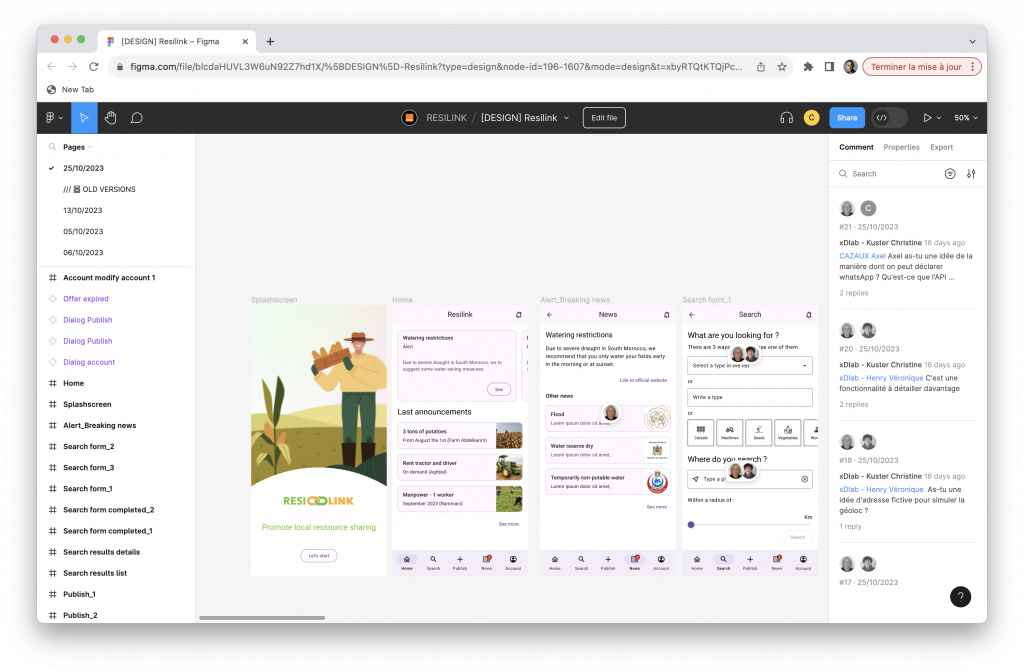
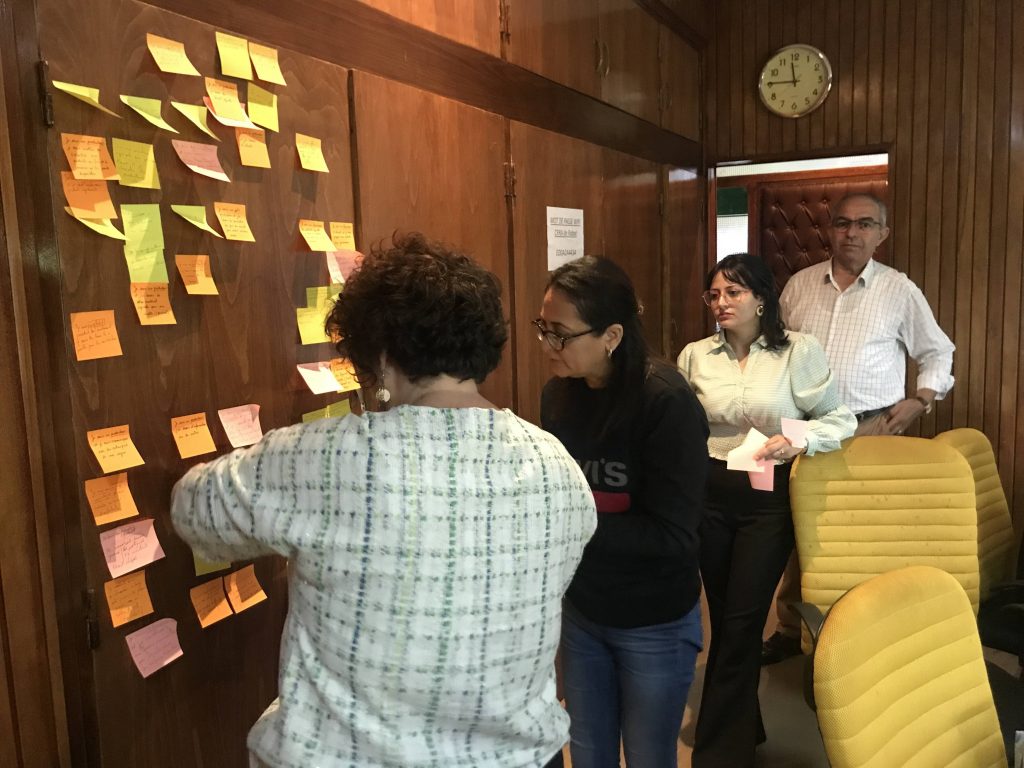
In addition, the whole RESILINK team was disseminating the project’s objectives and first results at many scientific events, exhibitions, workshops, …
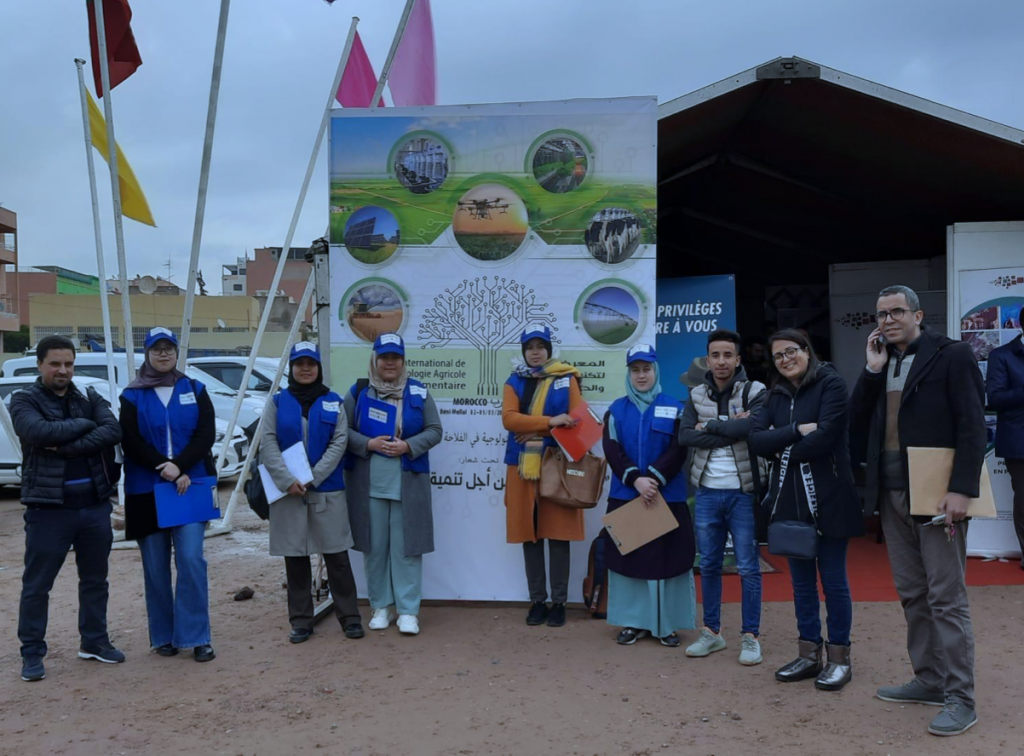

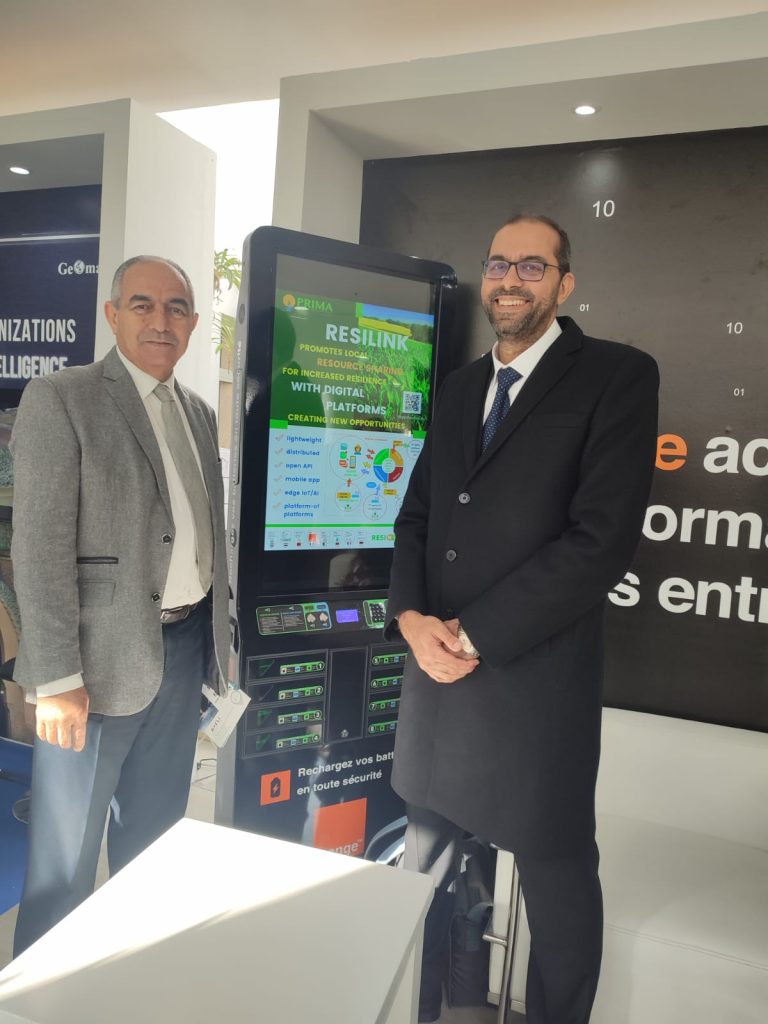

WHAT ARE THE NEXT NEWSLETTERS?
We will release Newsletters every 4 months. The next Newsletters will highlight:
- The lower layer of the RESILINK digital platform: the ODEP component
- The RESILINK mobile application mockup
- How the RESILINK team is preparing the large-scale evaluation program?
- and much more
HOW TO SUBSCRIBE TO NEWSLETTERS, ASK QUESTIONS AND PROVIDE FEEDBACKS TO NEWSLETTERS?
You can subscribe to the RESILINK Newsletter using our mailchimp form.
You can ask questions and provide feedbacks for each Newsletter by using the Reply feature on our Post section. The Post associated to this NEWSLETTER#1 is: https://resilink.eu/this-is-resilink-newsletter-1